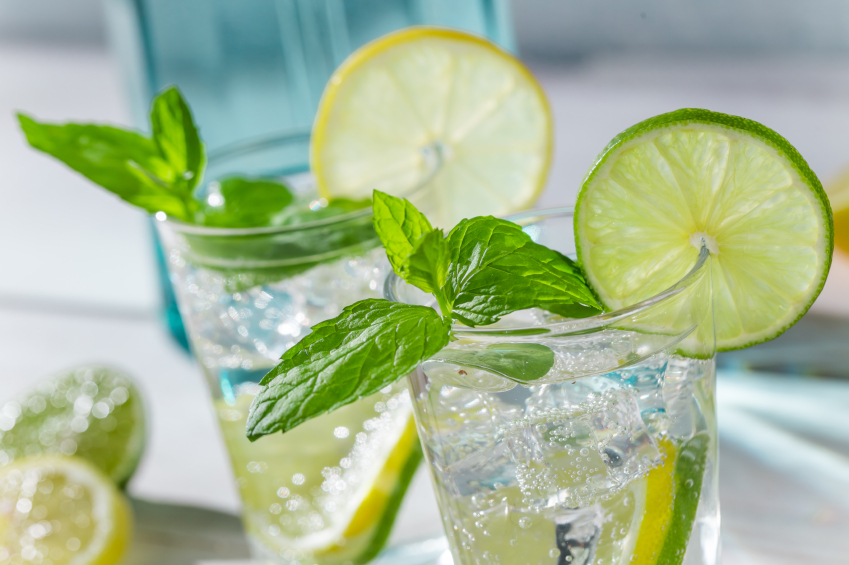There is something extra refreshing about a glass of sparkling water, and served in a cocktail glass with a twist it can help you get through a night of partying without overdoing alcohol. But somehow word has gotten around that bubbly water is bad for you. To get to the bottom of it, I dug through the research. Here’s what the science has to say:
Bubbly Water Myth
The rumor is that bubbly water can lead to bone loss, increasing the risk of osteoporosis. It’s also accused of eroding tooth enamel and causing gas and bloating.
Bubbly Water Truth
Plain carbonated water is made by adding carbon dioxide to water. This forms carbonic acid, which makes sparkling slightly more acidic than still water. But unless you drink it in extreme amounts, studies show it will not affect the health of your bones or teeth. Some sparkling waters even contain added minerals, which could help strengthen your pearly whites.
Research linking carbonation with bone loss or tooth enamel erosion have mostly used soda, not carbonated water. Soda is much more acidic because of the phosphoric acid it contains, plus the added sugar is bad for teeth.
As far as causing gas and bloating, some people do find that to be an issue. But some studies show sparkling water can actually relieve indigestion and constipation by stimulating digestion. Let your body be the judge on this one. Sip, don’t gulp, and if you find you can’t tolerate the bubbles, then stick with still.
The Bottom Line
Bubbly water is mostly a healthy way to add some sparkle to what you drink. To be safe, don’t drink it exclusively, but alternate with still water. Plus, not all sparkling waters are created equal. Club soda, tonic water and some flavored varieties can contain added sodium, sugar, and artificial sweeteners. For this reason, when it comes to sparkling water, plain is best.



